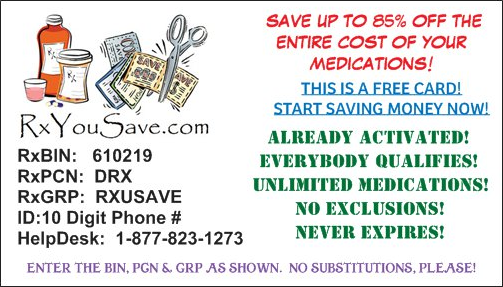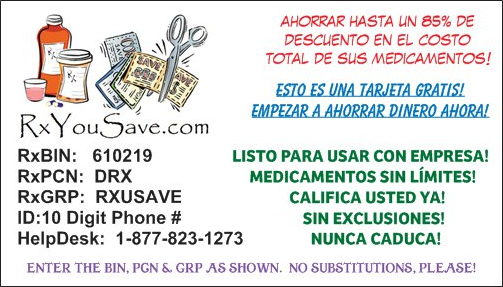Contact Us In The Partner With Us >> About Us Section!
Juvisync Medication Guide Information

Read the Medication Guide that comes with Juvisync before you start taking it and each time you get a refill. There may be new information. This Medication Guide does not take the place of talking with your doctor about your medical condition or treatment. Talk to your doctor if you have any questions about Juvisync.
Pronunciation: (JU-vih-sink)
|
Availability: Tablets
|
What is the most important information I should know about This Medication?
Serious side effects can happen in people taking This Medication, including inflammation of the pancreas (pancreatitis) which may be severe and lead to death. Certain medical problems make you more likely to get pancreatitis.
Before you start taking JUVISYNC:
Tell your doctor if you have ever had
- Pancreatitis
- Stones in your gallbladder (gallstones)
- A history of alcoholism
- High blood triglyceride levels
- Kidney problems
Stop taking JUVISYNC and call your doctor right away if you have pain in your stomach area (abdomen) that is severe and will not go away. The pain may be felt going from your abdomen through to your back. The pain may happen with or without vomiting. These may be symptoms of pancreatitis.
What is JUVISYNC?
- JUVISYNC is a prescription medicine that contains two medicines, sitagliptin and simvastatin, in one pill. JUVISYNC can be used in adults who need both sitagliptin and simvastatin.
- Sitagliptin can be used along with diet and exercise to lower blood sugar in adults with type 2 diabetes.
- Simvastatin can be used with diet and exercise in adults at high risk for heart attack or stroke to lower your chance of:
- Death from heart problems
- Having a heart attack or stroke
- Needing certain blood vessel procedures
- Simvastatin can be used in adults with certain cholesterol problems to lower levels of total cholesterol, LDL (bad) cholesterol, and fatty substances called triglycerides in the blood. In addition, simvastatin raises levels of HDL (good) cholesterol. Simvastatin is for people who cannot control their cholesterol levels by diet and exercise alone. You should stay on a cholesterol-lowering diet while taking this medicine.
- Sitagliptin is not for people with type 1 diabetes.
- Sitagliptin is not for people with diabetic ketoacidosis (increased ketones in your blood or urine).
- If you have had inflammation of your pancreas (pancreatitis) in the past, it is not known if you have a higher chance of getting pancreatitis while you take sitagliptin.
- JUVISYNC has not been studied in people who have an increase of chylomicrons (Fredrickson
- types I and V).
- JUVISYNC is not for people with certain kidney problems.
- It is not known if JUVISYNC is safe and effective when used in children under 18 years of
- age.
For more information, see the sections called "What is type 2 diabetes?" and "What should I know about high cholesterol?".
Who should not take JUVISYNC?
Do not take JUVISYNC if you:
- Are allergic to any of the ingredients in This Medication. See the end of this Medication Guide for a complete list of ingredients in This Medication.
- Symptoms of a serious allergic reaction to This Medication may include:
- Rash
- Raised red patches on your skin (hives)
- Swelling of the face, lips, tongue, and throat that may cause difficulty in breathing or
- swallowing
- Take certain medicines such as:
- Anti-fungal medicines including:
- Itraconazole
- Ketoconazole
- Posaconazole
- Voriconazole
- HIV protease inhibitors, including:
- Indinavir
- Nelfinavir
- Ritonavir
- Saquinavir
- Tipranavir
- Atazanavir
- Certain hepatitis C virus protease inhibitors, including:
- Boceprevir
- Telaprevir
- Certain antibiotics, including:
- Erythromycin
- Clarithromycin
- Telithromycin
- Nefazodone
- Medicines containing cobicistat
- A fibrate medicine for lowering cholesterol called gemfibrozil
- Cyclosporine
- Danazol
Ask your doctor if you are not sure whether your medicine is listed above.
- Have active liver disease or repeated blood tests indicating possible liver problems.
- Are pregnant or think you may be pregnant, or you are planning to become pregnant.
- Are a woman of childbearing age, you should use an effective method of birth control to prevent
- pregnancy while using This Medication.
- Are breastfeeding or plan to breastfeed.
What should I tell my doctor before taking This Medication?
Before you take This Medication, tell your doctor if you:
- Have or have had inflammation of your pancreas (pancreatitis).
- Have kidney problems.
- Drink substantial quantities of alcohol or ever had liver problems.
- Have any other medical conditions.
- Are taking drugs that prevent blood clots, such as warfarin.
Taking This Medication with certain substances can increase the risk of muscle problems. It is especially important to tell your doctor if you take:
- Fibric acid derivatives (such as fenofibrate)
- Amiodarone or dronedarone (drugs used to treat an irregular heartbeat)
- The following medicines used to treat high blood pressure, chest pain with heart disease, or
- other heart problems:
- Verapamil
- Diltiazem
- Amlodipine
- Ranolazine
- Grapefruit juice (which should be avoided while taking JUVISYNC)
- Colchicine (a medicine used to treat gout)
- Lomitapide (a medicine used to treat a serious and rare genetic cholesterol condition)
- Large doses of niacin or nicotinic acid
Tell your doctor if you are taking niacin or a niacin-containing product, as this may increase your risk of muscle problems, especially if you are Chinese.Tell all of your doctors about all the medicines you take, including prescription and non-prescription medicines, vitamins, and herbal supplements. Know the medicines you take. Keep a list of your medicines and show it to your doctor and pharmacist when you get a new medicine.
How should I take JUVISYNC?
- Do not break or cut This Medication tablets before swallowing. If you cannot swallow JUVISYNC tablets whole, tell your doctor.
- Your doctor may tell you to take This Medication along with other diabetes medicines. Low blood sugar can happen more often when This Medication is taken with certain other diabetes medicines. See "What are the possible side effects of JUVISYNC?".
- If you take too much This Medication, call your doctor or go to the nearest hospital emergency room right away.
- When your body is under some types of stress, such as fever, trauma (such as a car accident), infection or surgery, the amount of diabetes medicine that you need may change. Tell your doctor right away if you have any of these conditions and follow your doctor’s instructions.
- Check your blood sugar as your doctor tells you to.
- Stay on your prescribed diet and exercise program while taking This Medication.
- Talk to your doctor about how to prevent, recognize and manage low blood sugar (hypoglycemia),
- high blood sugar (hyperglycemia), and problems you have because of your diabetes.
- Your doctor will monitor your condition with regular blood tests, including your blood sugar levels, hemoglobin A1C, and cholesterol levels, and to check for side effects.
- Your doctor will do blood tests to check how well your kidneys are working before and during your treatment with This Medication. Your doctor may change your dose or discontinue This Medication based on the results of your blood tests.
What are the possible side effects of JUVISYNC?
Serious side effects have happened in people taking This Medication.
- See "What is the most important information I should know about JUVISYNC?".
- Myopathy (muscle weakness) and rhabdomyolysis (muscle breakdown). Tell your doctor right away if you have unexplained muscle pain, tenderness, or weakness especially with fever while you take This Medication. Muscle problems, including muscle breakdown, can be serious in some people and on rare occasions may cause kidney damage that can lead to death.
- The risk of muscle breakdown is greater at higher doses of This Medication.
- The risk of muscle breakdown is greater in people 65 years of age and older, females,
- and people with kidney or thyroid problems.
If you have muscle problems that do not go away even after your doctor has advised you to stop taking This Medication, notify your doctor. Your doctor may do further tests to diagnose the cause of your muscle problems.
- Liver problems. Your doctor should do blood tests to check your liver before you start taking This Medication and if you have any symptoms of liver problems while you take This Medication. Call your doctor right away if you have the following symptoms of liver problems:
- Feel tired or weak
- Loss of appetite
- Upper belly pain
- Dark urine
- Yellowing of your skin or the whites of your eyes
- Kidney problems, sometimes requiring dialysis
- Low blood sugar (hypoglycemia). If you take This Medication with another medicine that can cause low blood sugar, such as a sulfonylurea or insulin, your risk of getting low blood sugar is higher. The dose of your sulfonylurea medicine or insulin may need to be lowered while you use This Medication.
Signs and symptoms of low blood sugar may include:
- Headache
- Irritability
- Drowsiness
- Hunger
- Weakness
- Fast heart beat
- Dizziness
- Sweating
- Confusion
- Feeling jittery
- Serious allergic reactions. If you have any symptoms of a serious allergic reaction, stop taking This Medication and call your doctor right away. See "Who should not take JUVISYNC?". Your doctor may give you a medicine for your allergic reaction and prescribe a different medicine for your diabetes.
The most common side effects of JUVISYNC include:
- Upper respiratory infection
- Stuffy or runny nose and sore throat
- Headache
- Stomach pain
- Nausea
- JUVISYNC may have other side effects, including:
- Swelling of the hands or legs. Swelling of the hands or legs can happen if you take JUVISYNC incombination with rosiglitazone (Avandia®). Rosiglitazone is another type of diabetes medicine.
- Joint pain
- Muscle pain
- Alterations in some laboratory blood tests
- Liver problems (sometimes serious)
- Nausea
- Dizziness
- Tingling sensation
- Depression
- Trouble sleeping
- Poor memory
- Erectile dysfunction
- Breathing problems including persistent cough and/or shortness of breath or fever.
These are not all the possible side effects of This Medication. For more information, ask your doctor or pharmacist. Tell your doctor if you have any side effect that bothers you, is unusual or does not go away. Call your doctor for medical advice about side effects. You may report side effects to FDA at 1-800-FDA-1088.
How should I store This Medication?
Store This Medication at 68°F to 77°F (20°C to 25°C). Store in a dry place with cap tightly closed.
Keep This Medication and all medicines out of the reach of children.
General information about the use of This Medication
Medicines are sometimes prescribed for purposes that are not listed in Medication Guides. Do not use This Medication for a condition for which it was not prescribed. Do not give This Medication to other people, even if they have the same symptoms you have. It may harm them.
This Medication Guide summarizes the most important information about This Medication. If you would like to know more information, talk with your doctor. You can ask your doctor or pharmacist for additional information about This Medication that is written for health professionals. For more information, go to www.JUVISYNC.com or call 1-800-622-4477.
What are the ingredients in This Medication?
Active ingredients: sitagliptin and simvastatin
Inactive ingredients: anhydrous dibasic calcium phosphate, microcrystalline cellulose, croscarmellose sodium, sodium stearyl fumarate, magnesium stearate, ascorbic acid, citric acid monohydrate, lactose monohydrate, pre-gelatinized corn starch, butylated hydroxyanisole.
The tablet film coating contains the following inactive ingredients: polyvinyl alcohol, polyethylene glycol, talc, titanium dioxide, and red iron oxide. The film coating for certain tablet strengths also contains yellow iron oxide and black iron oxide.
What is type 2 diabetes?
Type 2 diabetes is a condition in which your body does not make enough insulin, and the insulin that your body produces does not work as well as it should. Your body can also make too much sugar. When this happens, sugar (glucose) builds up in the blood. This can lead to serious medical problems. High blood sugar can be lowered by diet and exercise, and by certain medicines when necessary.
What should I know about high cholesterol?
Your body and it comes from the food you eat. Your total cholesterol is made up of both LDL and HDL cholesterol. LDL cholesterol is called "bad" cholesterol because it can build up in the wall of your arteries and form plaque, which can slow or block blood flow to your heart, brain, and other organs. HDL cholesterol is called "good" cholesterol because it keeps the bad cholesterol from building up in the arteries. Triglycerides also are fats found in your body.
Need Help Paying For this Medication? Right Click An Image Below & Download Your Copy Of The RxYouSave Free Prescription Discount Card & Save Up To 85% Off The Entire Cost Of Your Prescription!
 |
 |
Click Here To Go To The Top Of The Page

